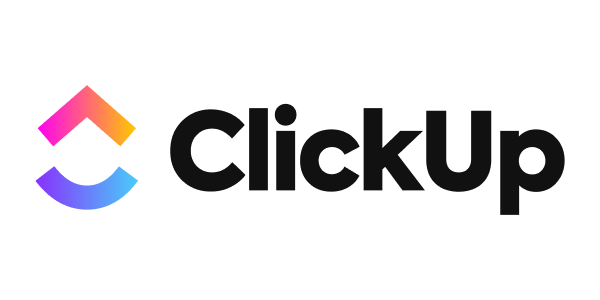Negligence and Profusion
Adam Smith | Elizabeth Anderson on The Progressive Work Ethic | TRAPs at Work | Reading Now | Factoids

Quote of the Moment
The directors of such [joint-stock] companies, however, being the managers rather of other people’s money than of their own, it cannot well be expected that they should watch over it with the same anxious vigilance with which the partners in a private copartnery frequently watch over their own. Like the stewards of a rich man, they are apt to consider attention to small matters as not for their master’s honour, and very easily give themselves a dispensation from having it. Negligence and profusion1, therefore, must always prevail, more or less, in the management of the affairs of such a company.
| Adam Smith (1776)
I love the term ‘copartnery’, and plan to use it whenever I can.
Elizabeth Anderson on The Progressive Work Ethic
In The Struggle for Meaningful Work (subtitled Socially necessary labor should entitle us to respect, decent pay, and safe conditions—not a duty to work relentlessly, without complaint), Elizabeth Anderson walks us through the rise of the progressive work ethic from the earliest days of the industrial revolution -- naming the visionaries that pushed for greater democracy and equality at work -- to its apotheosis in the thirty years of the post-WWII era when social democracies in Europe and to a lesser extent in the US adopted what were once utopia ideals:
These countries adopted a suite of policies to achieve the progressive work ethic's goals, including comprehensive social insurance, facilitation of labor unions and sectoral bargaining, codetermination (joint management of the workplace by representatives of both labor and capital), dramatic expansion of affordable or free public higher education, and guaranteed paid vacations and family leaves.2
The rise of neoliberalism, the mad cult of the markets, and a reversion to the conservative work ethic have led to a worldwide regression for ordinary people and the wholesale loss of work freedoms. She writes;
If workers had a powerful voice in the government of their workplace, they would not choose to reduce themselves to de-skilled drudges or inflict moral injury on themselves. Democratizing work is a powerful way to promote democratic skills and dispositions, demonstrate that democracy can respond to ordinary people’s concerns, and thereby strengthen democracy at the state level.
Anderson’s pitch falls a little flat at the end, perhaps because her voice is too dry when it should burn hotter. This is a major, ongoing injustice that has damaged generations worldwide.
And the title is wrong. This is not an argument for making work more 'meaningful' but a call for casting off the chains of subservience baked into the contemporary work culture.
TRAPs at Work
In Pay Thousands to Quit Your Job? Some Employers Say So., Robin Kaiser-Schatzlein looks into the widespread practice of ‘training-repayment-agreement’, or TRAPs, where companies seek to recoup money paid for worker training — often required by the employer — from the workers if they leave the company within some period of time.
Some excerpts:
The line between recouping costs and penalizing workers for leaving can be blurry, and companies have increasingly taken advantage of that ambiguity.
This type of contract provision is known as a “stay or pay” clause[1], and it used to be common only for certain high-paying roles or in certain specialized industries. For airline pilots and software engineers, for example, it has been a longstanding practice at some companies to require employees to stay at their jobs for a defined period of time in order to recoup costs related to hiring and training. But the line between recouping costs and penalizing workers for leaving can be blurry, and companies have increasingly taken advantage of that ambiguity. Workers’ rights advocates say that, in many cases, stay-or-pay clauses no longer accurately reflect the company’s costs but instead appear to be inflated financial penalties designed to discourage quitting.
The use of stay-or-pay clauses has grown rapidly over the past decade, and it has seemingly exploded since the start of the pandemic, as companies try to retain workers in a tight labor market. The clauses have spread far beyond the handful of roles and industries where they originated and are now used by thousands of mid- and low-wage employers — something that came to light when workers began filing lawsuits challenging the practice. These contract terms have been applied to bank workers, salespeople, dog groomers, police officers, aestheticians, firefighters, mechanics, nurses, federal employees, electricians, roofers, social workers, paramedics, truckers, mortgage brokers, teachers and metal polishers. Legal experts believe stay-or-pay clauses might now be in industries that employ a third of all American workers.
This is another example of work practices that attempt to hamper workers from competing with employers and tying them to an employer through economic penalties. Similar to the power inequality built-in to non-compete clauses, that could, for example, prohibit a hairdresser from working within a 50-mile radius of an employer for a period of a year or more.
TRAPs and non-competes should be made illegal or severely circumscribed. A nail salon owner should not be able to demand that a worker take a course that is not mandated by a government agency in order to get a job, and specifically not require them to take the ‘course’ from the employer, meanwhile ‘agreeing’ to reimburse the training cost if quitting the company. It’s a form of indentured servitude.
Reading Now
I am more than halfway through the gripping speculative fiction Prophet Song, the 2023 Booker Prize winner by Paul Lynch. Set in a contemporary Ireland where conservatives suddenly impose authoritarian rule, and citizens start to disappear — like Larry, a union organizer and the husband of the protagonist, Eilish, and their two sons — and the citizenry begin to openly rebel, leading to a complete breakdown politically, and the headlong rush of Eilish’s stunning perseverance in the face of losing so much.
One facet that aligns with work: as the conservatives begin to take over all institutions, the managers at Eilish’s workplace are replaced by government functionaries with little knowledge of the business. We are not shown anything of the activities or thinking of those running the new authoritarian government, just its pawns, but I sense that business leaders had taken control in combination with the military.
Highly recommended.
…
I have read several essays by Rebecca Solnit from Call Them by Their True Names. One, Naive Cynicism, by strange coincidence, opens in Ireland, with Solnit recounting the 1916 uprising against English rule. It was violently put down but is now considered the first step in the eventual end of colonial rule in 1937 and the beginning of the end of the English Empire. In 1916, the majority of British continued to believe that Ireland would never be free from British rule. That was naive and cynical.
We live in a time when the news media and other purveyors of conventional wisdom like to report on the future more than on the past. They draw on polls and false analogies to announce what is going to happen next, and their prequent errors — about the unelectability of a Black presidential candidate, say, or the inevitabliity of this or that oil pipeline — don’t seem to impede their habit of prophecy or our willingness to abide them. “We don’t actually know” is their least favorite thing to report.
Non-pundits, too, use bad data and worse analysis to pronounce with reat certainty on future inevitabilities, present impossibilities, and past failures. The mind-set behind these statements is what I call naive cynicism. It bleeds the sense of possibility and maybe the sense of responsibility out of people.
Factoids
Fifty-six percent of the economically most impactful technologies come from just two U.S. locations, Silicon Valley and the Northeast Corridor. | Aakash Kalyani, Nicholas Bloom, Marcela Carvalho, Tarek Hassan, Josh Lerner and Ahmed Tahoun, The Diffusion of New Technologies
…
The White House said it had announced over 40,000 infrastructure projects across 4,500 communities in every state, territory and Washington, D.C., including the beginning of improvements to more than 135,000 miles of road, and expanded access to affordable high-speed internet for more than 22 million people. | Mitch Landrieu, Biden’s Infrastructure Czar, Moves to Presidential Campaign
…
…
It makes sense for humans to eat squid. Environmentally-minded chefs like it because it is one of the lowest carbon-emitting sources of animal protein on the planet. Squid are also surprisingly equipped to handle climate change: Ocean acidification doesn’t seem to bother the animal, and rising ocean temperatures can cause it to reproduce more quickly. “Squid is truly the food of the future,” says Paul Greenberg, the best-selling author of “Four Fish and American Catch.” | Ian Urbina
‘Profusion’ in Smith’s era meant ‘lavish expenditure,’ meaning fat paychecks, expensive furniture, and grand offices.
Reminds me of Supoit’s list from A More Equitable Distribution:
The collective freedoms established by the social state: freedom of association, right to strike, collective bargaining; representation of employees in the company, which make social antagonisms the driving force behind a permanent transformation of the Law.
Keep reading with a 7-day free trial
Subscribe to Work Futures to keep reading this post and get 7 days of free access to the full post archives.



